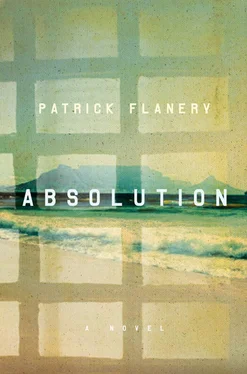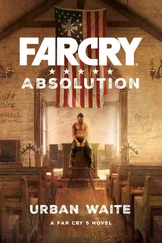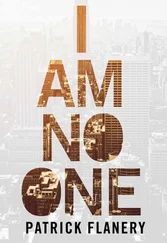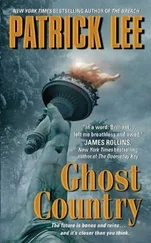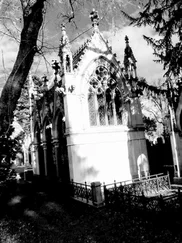A young woman arrives with the coffee and Clare asks me to pour. The table is so low I have to kneel.
‘It’s been a long time since I’ve had a man down on his knee before me.’
At times it feels like she must have a secret twin, and the two of them trade off, taking over the role of Clare Wald for as long as one can stand it, and then passing the part on to the other, one playing Clare as a brittle authoritarian, the other as a solicitous and gossipy flirt.
‘When we last met,’ I begin, taking out my notebook and audio recorder, ‘we were talking about your work as an advisory reader for the censors.’
‘Yes, what I suspect you regard as my complicity in the workings of a brutally unjust and philistine regime. That was the idea, was it not, behind your little coup de théâtre : the presentation of my censor’s report?’
‘I have to admit, when I first saw the report on Cape Town Nights I thought I had found something extraordinary, because it seemed to run counter to every belief you’ve ever espoused publicly. But the idea that you worked to censor one of your own books — I still don’t know what to make of it,’ I say, thinking all the while of what is really on my mind. Sarah is right. I drive myself mad with hesitation, my inability to be direct and say what I actually think. But the fear of causing offence is so great that it cancels out every other intention.
‘Does it make me less interesting to you?’
‘Not at all. If you had acted to silence another writer, someone you did or didn’t know, then that could have been explained away as necessary if regrettable pragmatism — you feeling forced to do what you did not wish to do. Or even as a momentary lapse, a kind of madness. But to think of all the effort required to produce a text that you knew would in all likelihood be banned, and then to be faced with recommending the banning of your own work, that’s—’
‘Another kind of madness,’ she says, arranging a pillow behind her back and propping herself in the corner of the couch. ‘To be honest, I had no guarantee that the book I wrote as Charles Holz would be sent to me for review. It was, in that case, pure chance, but then pure chance is responsible for many of the most peculiar weirdnesses of history. Poor Charles — I conjured him only as a sacrifice. He was as much a character as all my others, but the fiction of his being was only apparent to me, and was in many ways my most successful creation, until you came along. He has his own bureaucratic life. You can find the entry for the banning of his book in the Government Gazette . His name even appears in a handful of history books and critical studies. One academic has gone so far as to dig up a stray copy of the novel — even banned books found a home in university libraries, as curiosities safe only for academic study — and mentioned it in passing in a larger survey of censored books under the apartheid regime. It makes for entertaining reading, although only, I’m certain, to me. Anyone else could not be very interested in the book. Described as it is — a tale of interracial romance and violence, blasphemy against all three Abrahamic religions, a celebration of Communism, and a sensationalist account of the workings of the ANC and MK — it has only very limited appeal these days. When I embarked on this project of yours it never occurred to me that Charles and his Cape Town Nights would even come up. I thought it was all buried, truly. Now I am toying with the idea of republishing it. I have the manuscript, of course, and a copy of the first — the only — edition. Who, I wonder, sent you the report? As far as I knew, I was the only one who still had a copy of it.’
‘I haven’t found out.’
‘Nor shall we, I suspect,’ Clare says, looking preoccupied. ‘I suppose I could have denied knowing who Charles was or where he might be, but there seemed no point in lying to you. You, I think, would have dug up the truth no matter what I might have said.’
‘But would you acknowledge that it was also self-serving, in a way, to admit it was you?’
‘Oh yes. If I reveal that I was the writer whose work I advocated banning then I inoculate myself against criticism. I do see that entirely. But it’s the truth, and even though it should immunize me there’s also something damning about that , isn’t there? As if I had planned it from the beginning — a way to indemnify myself against ever being called to account for my work as a censor. See, I would be able to say, I may have banned a book, but it was only one of my own . I fear I did not think quite so tactically at that age. If anything, it was an experiment. And the experiment failed, in a way, when the book was delivered to me for review. Some other censor might have read it and decided it should pass, though I cannot imagine that would have happened. Or they might have read it and said, This is indisputably the work of Clare Wald . Though that is even more unlikely, because the book was nothing like anything else I’d ever written, and not least because at the time Clare Wald did not have an unmistakable style or trademark. My first few books were so different from one another. At the time, Clare Wald was too young to be known or even recognizable. There, you have trapped me into talking about myself in the third person,’ she says, holding out her cup for me to refill. She smiles in a way that looks almost compassionate, but I’ve learned not to trust my readings of her expressions. The face says one thing and she’ll be thinking something else altogether.
The afternoon progresses and while I try to concentrate on the task at hand, returning to points we’ve covered in the past and clarifying a few areas that still seem fuzzy, the whole time I’m thinking of Laura, of what I’ve learned about her, and of standing on Clare’s porch at her old house. I look at Clare and I see her younger face, behind the mesh of screen, and I see her daughter’s face, too, as I last saw it in the hills above Beaufort West. In moments of silence between us I try to understand what Laura’s care for me means in light of Timothy’s revelation, but I can’t reach any conclusions. All I know with certainty is what I experienced and what I observed. In the absence of evidence, everything else is hearsay and conjecture.
Clare’s face gradually falls into the look of disappointment I’ve come to know so well. I’m letting her down, but if she wants me to ask about my own place in her life, the place that almost was, I still can’t bring myself to do it. The dread of hearing her answer is enough to keep me mute on that point. If only she would give me some concrete sign that she remembers that day on her doorstep.
‘You might have guessed that the other thing I have to ask about is Nora.’
‘Yes, I thought you would come to that.’
‘ Absolution is fiction—’
‘I didn’t want to call it that. The publishers insisted. It’s easier to sell a novel than a weird hybrid of essay and fiction and family and national history, although it’s really the latter — both fiction and something that is not quite fiction but less than proper history or memoir. That is why I said I didn’t think it would usurp the position of your own book.’
‘So the confession about your role in Nora’s assassination is which of those? Fiction or non-fiction?’
‘I leave that to you to decide, Samuel. You know I am loath to explicate my own texts. All I will say is that there is no evidence to support either conclusion — that the historical Clare Wald did or did not make herself complicit in the assassinations of the historical Nora and Stephan Pretorius, as distinct from the fictional analogues for all three of those individuals, which is how I would urge anyone to read the characters in that book.’
Читать дальше
